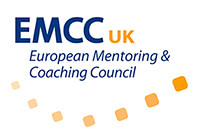
Executive coaching programme – Tavistock Consulting (ECP)
Improve your effectiveness as a coach and develop your coaching career
Please note: you may see the ECP course also referred to as SCTCTP002 in communications from our application system.
About this course
This programme is rooted in a systems-psychodynamic approach to organisations and is practice-based. It uses different learning techniques to develop your in-depth coaching skills including experiential exercises, facilitated skills practice sessions, theory presentations, video analysis and reflective plenary sessions. There is a focus on noticing and making sense of your actions, both as a coach and in the learning environment: the experiential learning for which the Tavistock is famous.
You will undertake ninety hours of coaching and receive intensive supervision, both one to one with an experienced supervisor and in professionally facilitated small coaching syndicates and supervision groups. You will develop your coaching practice under group and individual supervision and further develop your reflective capacity through detailed feedback on the reflective note you will submit following each two-day programme module.
The modules on this course will cover different aspects of coaching including defining the task of coaching, understanding and developing yourself as an effective coach, the impact of coaching on the client’s organisation, working with difference and issues of diversity, developing the coaching relationship with clients, linking coaching to the wider business environment, and ethical practice.
The external examiner for the course is Erik de Haan, Director of the Centre for Coaching at Ashridge Business School.
Who is this course for?
The course is suitable for:
- practising coaches who want to work at a deeper level with clients
- organisational consultants who wish to develop their one-to-one coaching skills
- executives, managers and clinicians wanting to add coaching to their portfolio.
Course details
There are no academic qualifications required for entry into the course, and participants come from many professional backgrounds. Participants share a desire to learn to work with themselves as instruments and to work at a deeper one-to-one level with clients in organisations, in the service of helping clients to improve their work relationships and personal effectiveness.
Applications are reviewed as these are received, and potential candidates are invited for individual interview with the course director and/or one of the faculty. Offers are made taking into account individual suitability and group composition. Each cohort is limited to 12 participants; once 12 offers have been made we will establish a short waitlist or, if there is sufficient interest among qualified candidates, may run a second cohort.
Course fees for September 2025 entry: £9,850
For more information about financing your studies and your fee status, please see our fees and funding area.
We are happy to offer a range of ways to pay your fees, as well as some funding for specific courses.
Assessment
For the award of the Tavistock Consulting certificate in executive coaching, participants must satisfy course staff that they possess the relevant competencies for practice in alignment with the EMCC senior practitioner competency framework.
50% is based on continuous assessment of the development of participants’ coaching skills through observation including a mid-course and end-of-course review, 50% on written submissions i.e. case summaries based on current coaching practice.
Attendance
Attendance is part-time. All five modules are in person unless precluded due to reasons outside the control of the Tavistock (e.g. public transport strike). Group supervision sessions are likewise in person.
| Module / Session | In person dates and times |
| Module 1 | 9am to 5.30pm, 8 and 9 September 2025 |
| Module 2 | 9am to 5.30pm, 24 and 25 November 2025 |
| Group Supervision | 9.30am to 12pm, 26 November 2025 |
| Module 3 | 9am to 5.30pm, 12 and 13 January 2026 |
| Group Supervision | 9.30am to 12pm, 14 January 2026 |
| Module 4 | 9am to 5.30pm, 2 and 3 March 2026 |
| Group Supervision | 9.30am to 12pm, 4 March 2026 |
| Module 5 | 9am to 5.30pm, 11 and 12 May 2026 |
| Group Supervision | 9.30am to 12pm, 13 May 2026 |
| Group Supervision | 9.30am to 4pm, 10 September 2026 |
| Group Supervision | 9.30am to 4pm, 12 October 2026 |
| Individual Supervision | To be arranged directly between participant and supervisor |
In addition there will be four 1.5 hour reading seminars between modules; these are delivered online. Dates for these seminars will be confirmed at the start of the programme.
Please note that whilst we try to keep these dates and timings fixed, there is always the chance that due to unforeseen events, these may need to be changed. We endeavour to communicate to participants about any changes with as much notice as possible.
Many course graduates have developed their existing coaching practice to focus on systems-psychodynamic coaching with their new qualification or have extended an extant consultancy practice to include systems psychodynamic coaching. Some have entered a new stage in their career by establishing themselves as freelance coaches.
Others have gone on to develop an internal coaching practice, for example working in an HR role that includes the provision of coaching within their organisation.
Why study with us?
This method of executive coaching will enable you to work at depth using emotional data to tackle the hard-to-reach issues that can limit the performance of leaders, teams and organisations.
This programme and qualification can also be commissioned as a bespoke course to take place inside a client organisation or HR department.
Interested in this course but have questions before applying? Book a 1-1 session with an admissions advisor to find out more.
Testimonials
Course facilitators
Validations and accreditations
This programme is accredited at senior practitioner level by the European Mentoring and Coaching Council (EMCC).
Research and publications
The following publications have recently been produced by course faculty:
Digital material
- Cardona, Francesca, Neal, Ben, Vesey, Robyn and Roberts, Vega Zagier (2020) The relevance of the Tavistock model of consulting in the context of a crisis. (video; part one of two webinars)
- Neustadt, Elizabeth A., Chamorro-Premuzic, Tomas & Furnham, Adrian (2011): Attachment at work and performance, Attachment & Human Development, 13:5, 471-488
- Vesey, Robyn (2021) Emotions in the workplace. Into the Unsaid, 20 Apr 2021 (podcast)
- Vesey, Robyn (2021) The screen in between: Five key questions about your coaching practice online (blog)
Apply now
Start your application for this course.
